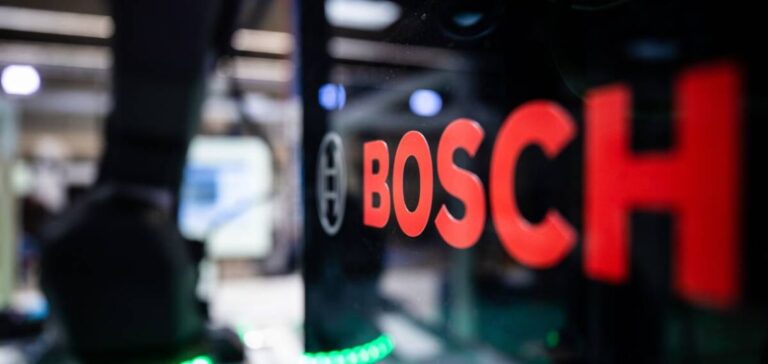German automotive supplier Bosch announced on Thursday a further billion euros in investment to develop hydrogen batteries, while calling on the European Union to do more to support this technology in the face of the United States.
Bosch strengthens its commitment to hydrogen with a further investment of one billion euros
“Between 2021 and 2026, Bosch will have invested almost 2.5 billion euros in the development of hydrogen-based technologies. That’s one billion euros more than planned,” said group boss Stefan Hartung at a press conference in Stuttgart.
Hydrogen, which can store renewable electricity, is the preferred option for decarbonizing the truck and heavy goods vehicle sector. On Thursday, the Group announced the launch of commercial-scale production of fuel cell power modules for truck engines at its Stuttgart-Feuerbach plant in Germany and in China. Its first customer will be American hydrogen truck manufacturer Nikola, he added.
“In this plant, more than in any other, Bosch’s hydrogen-dedicated future is about to begin”, enthused Mr. Hartung, who welcomed the “financial support” granted by the EU for the project.
Bosch appeal: The EU must create a favorable environment for the hydrogen industry
However, the industrialist called on Europe to move faster to support this sector.
“The EU is not doing enough to create a counterweight to the rapid pace of development in other parts of the world,” he assured. “In the United States, it’s happening faster, thanks to the Inflation Reduction Act, which massively subsidizes the hydrogen sector,” he said.
Last year, Washington unleashed hundreds of billions of dollars to develop the green industry via a massive subsidy plan, criticized by Europeans for its protectionism. The CEO also criticized the “additionality” principle, which at European level requires electrolysers to be connected only to new sources of renewable electricity production, so as not to reduce the volume of energy already available for other uses.
“The European Union’s priority is the direct production of renewable energy, for example in cars and heating. It doesn’t matter where the electricity comes from,” Hartung lamented.
Finally, he called on the EU to rapidly set up distribution infrastructures on the continent, and to relax the conditions for importing hydrogen from outside Europe. Bosch is aiming for hydrogen sales of 5 billion euros by 2030. According to the International Energy Agency (IEA), the global hydrogen market is set to grow sevenfold by 2050, from 94 million tonnes in 2021 to 660 million tonnes in 2050.






















